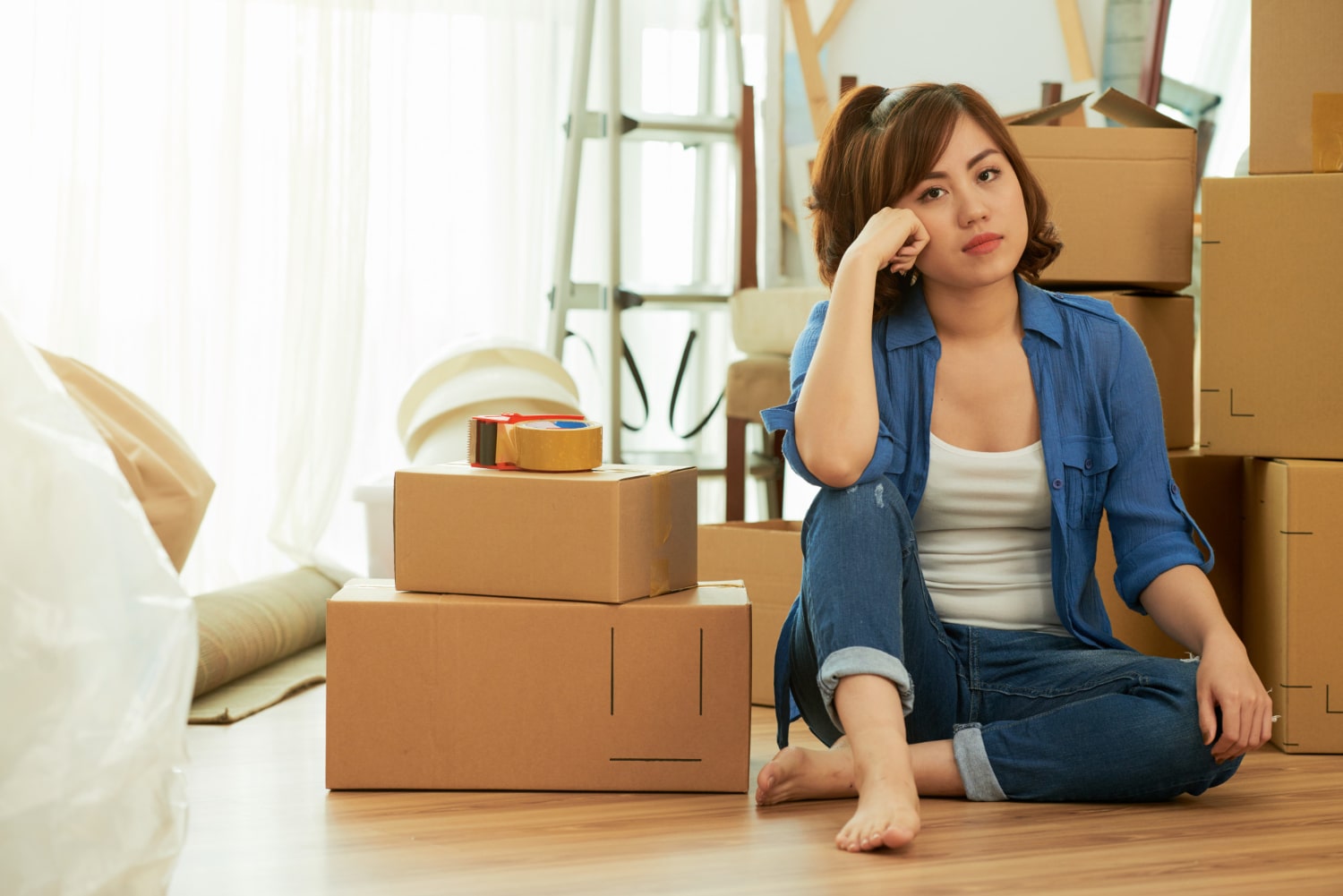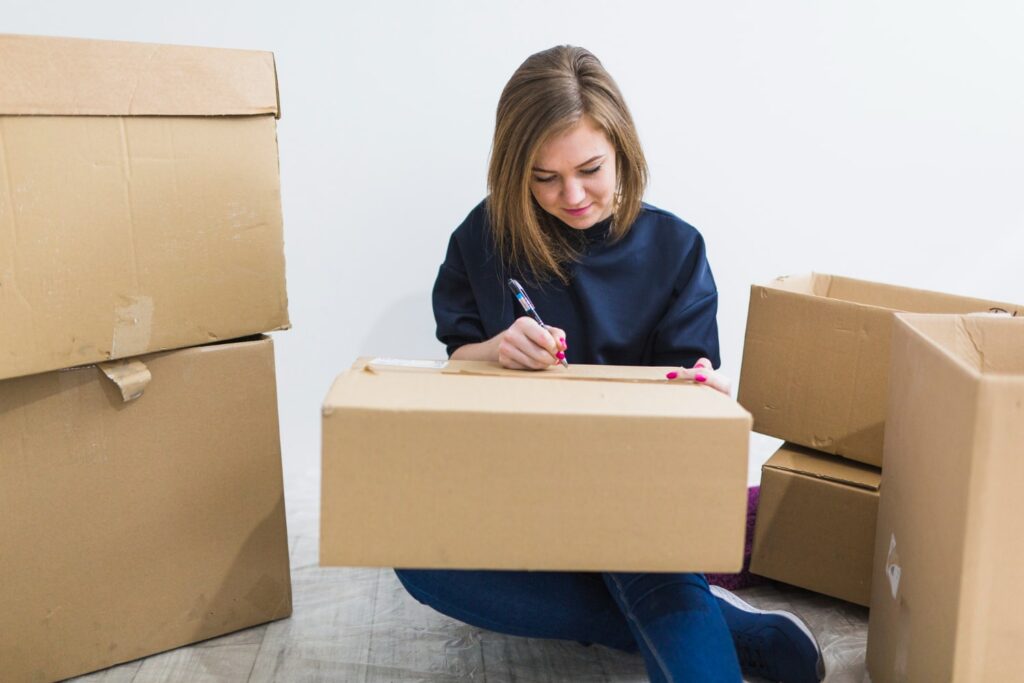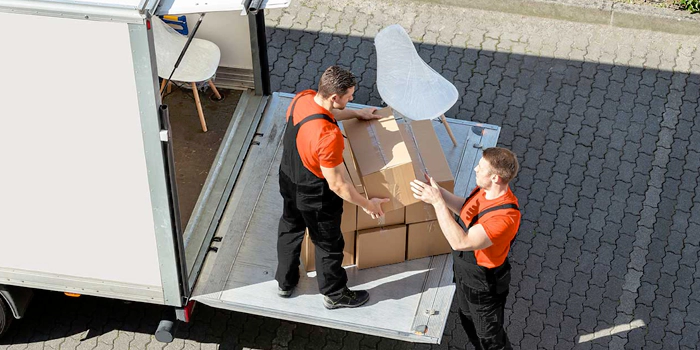
Whether you’re looking for a full moving out checklist, a step-by-step moving out process, or just a guide to help navigate the emotional and financial sides of moving out of home, this article has you covered. From legal age concerns to what essentials you’ll need, it’s all here.
Moving out of your parents’ house for the first time is a major milestone. It marks a shift into independence, with all the excitement and responsibility that comes with it. Whether you’re a fresh graduate or just landed your first job, this comprehensive checklist is designed to support young Australians through the emotional, practical, and financial steps of moving out.
1. Emotional Preparedness
Expect emotional highs and lows. It’s common to feel a mix of excitement, nervousness, homesickness, and loneliness. One young mover recalled bursting into tears their first night—not because something went wrong, but because it finally hit them: this was real. If you’re feeling anxiety about moving out of your parents’ house, you’re not alone.
Many young Australians experience a fear of moving out of their parents’ house, especially if they’ve lived at home their whole lives. This fear can come from uncertainty, financial stress, or just the weight of becoming fully independent.
Moving out of home is a huge identity shift. Bring familiar items (like photos or your favorite doona) to create comfort. Stay connected with family through regular calls and visit plans, and be proactive in meeting new people through local clubs, work events, or community meetups.
2. Realistic Expectations vs. Reality
Your fridge won’t always be stocked, and you might end up eating cereal for dinner after work. One mover shared how they spent their first grocery trip proudly buying quinoa and kale—only to let it rot untouched while they ordered pizza four nights in a row.
Understand that things won’t always go as planned—and that’s okay. Social media glamorizes solo living, but the real deal includes overflowing laundry baskets, unassembled furniture, and mismatched cutlery. Your new address might not be glamorous at first, and shared accommodation might feel like a step down from home, but both are part of learning independence.
Keep a sense of humor and embrace the imperfections.
3. Financial Preparation
Start with a budget. Ideally, spend no more than 30% of your gross income on rent, but know that in many Australian cities, renters often spend closer to 50% (Australian Housing and Urban Research Institute). So, how much money do you need to move out? A safe ballpark figure is around $4,000–$6,000 AUD to cover upfront expenses like the rental bond, advance rent, basic furniture, and initial groceries or utilities. Understanding your financial situation early in the moving out process helps avoid future stress.
Moving costs can sneak up quickly, so it’s important to plan ahead. Factor in utility bills, internet, and services like electricity and gas that you’ll need to sign up for. Build an emergency fund (3 months of living expenses if possible), and use apps like Pocketbook or WeMoney to track your spending.
This preparation reduces your financial stress and increases your long-term success in living independently.
4. Finding and Securing a New Home
Start researching rental listings through property apps or local real estate platforms that provide filters for budget, location, and lease type. Attend inspections early and prepare your application: ID, proof of income, references, and a rental cover letter. Make sure you understand lease terms and your rights as a tenant under Australian tenancy laws.
Your rental bond should be officially lodged with the relevant state authority. Take photos for your condition report and line up essential utilities (electricity, gas, water, internet) before move-in day.
Whether you’re opting for your own place or shared accommodation, compare lifestyle needs and costs carefully. Don’t forget to update your driver’s licence and notify banks, schools, and other providers of your new address.
5. Building Adult Habits
Learn to cook basic meals and clean regularly. Create a weekly chore schedule and set bin day reminders. Use tools like Google Calendar for task management. Pay bills on time—including internet and utilities—and divide responsibilities clearly if you have housemates.
Talk openly with your housemates about routines, shared expenses, and expectations. Public transport might now become a bigger part of your life, so learn your local system and top up your card regularly. Small routines, like Sunday meal prep or laundry days, help structure your week and prevent overwhelm.
6. Handling Difficult Conversations
With housemates, be clear and respectful when setting boundaries. Discuss shared expenses, cleaning duties, and guest rules upfront. When dealing with landlords, communicate in writing and know your tenancy rights. With parents, explain your move and reassure them with your plans. Set healthy boundaries if they become over-involved post-move.
7. Sustainable and Minimalist Living
Furnish your place affordably through op shops, Gumtree, or Facebook Marketplace. Use what you have, upcycle when possible, and avoid buying everything at once. Choose eco-friendly options: LED bulbs, reusable containers, and shared streaming or cleaning products with housemates. Add plants for both air quality and aesthetic vibes.
8. Navigating Work and Independence
Balance career and home responsibilities. Use digital planners to manage time, and maintain a morning/night routine for stability. Don’t ignore burnout signs—Studies show Australia has high burnout rates among under-40s. Take advantage of health services like Headspace or Beyond Blue if needed, and make room for hobbies and rest.
Talk to supportive friends or family members when needed. Moving out of your family home is a big decision, but it’s also a gateway to growth. New friends, new responsibilities, and new habits await—support systems matter more than ever in this transition.
9. Moving Out of Home Checklist for Young Australians
 If you’re wondering about the stuff you need when moving out—or the things you need when moving out—this section covers everything essential to help you live comfortably from Day 1. Think of this as your go-to moving out list to help you stay organized.
If you’re wondering about the stuff you need when moving out—or the things you need when moving out—this section covers everything essential to help you live comfortably from Day 1. Think of this as your go-to moving out list to help you stay organized.
Essentials Checklist
- Bedroom: Bed, pillows, sheets, clothes storage, lamp.
- Bathroom: Towels, toiletries, toilet paper, first aid kit, bath mat.
- Kitchen: Pots, pans, kettle, toaster, cutlery, plates, dish rack, cleaning products.
- Living/Dining: Couch, table, chairs, power boards, lights.
- Other: Laundry basket, vacuum, toolkit, surge protectors, basic decor.
These moving out essentials form the foundation of a well-functioning home, especially for first-time movers leaving their parents’ house.
10. Packing & Moving Day Essentials
By this point, you’ve likely built a comprehensive moving out of home checklist. But now it’s time to make the actual move happen.
Pack a “first night bag” with toiletries, clothes, bedding, and snacks. Label boxes clearly and group essentials like kitchen basics separately.
Use towels to wrap fragile items. Move furniture with friends or hire removalists. Be sure to sign up early for essential utilities and services—like gas, electricity, and internet—so you’re not left in the dark (literally). Set up your bed and bathroom first to ease the first night stress.
11. Settling In & Building a Routine
Start with comfort: unpack your bedroom and kitchen first. One young professional said the turning point came when they found a nearby cafe that remembered their coffee order by week two—it made the city feel smaller, friendlier. Explore your neighborhood, introduce yourself to neighbors, and get involved in local events. Continue traditions from home or start new ones (like Friday night takeout or a Sunday beach walk). Stick to routines but leave room for spontaneity.
12. Budgeting and Lifestyle Tips
Once you’ve moved out from home, managing your finances becomes part of your day-to-day independence. Be mindful of recurring costs like rent, electricity, internet, and utility bills. Talk with your landlord or service providers to understand what’s included in your rental lease and what you’ll need to pay separately. Affording your own space may be tough at first, but with consistent income tracking, realistic budgeting, and support from family or friends, it gets easier.
Life outside your parents’ house comes with many responsibilities, but also many rewards.Enjoy Australia without overspending. Attend free events, visit markets, and explore nature. Rotate streaming subscriptions and track spending with apps. Cook at home more often and use student/concession discounts when available.
Apply the 50/30/20 rule: 50% on needs, 30% on wants, 20% on savings. Budgeting doesn’t mean no fun—just smart fun.
Conclusion
Moving out for the first time is both thrilling and daunting. And yes, there will be days when you miss home or feel unsure—but those are part of the process. Each step, even the awkward or messy ones, shapes you into a more capable, independent version of yourself. So take that leap, embrace your new life, and give yourself the space to grow. You’ve got this—and you’re not alone on the journey.
Backed by Australian studies, real-world experiences, and practical advice, this checklist is your go-to guide for navigating your first move out of home with confidence and clarity.
Frequently Asked Questions
Is moving out of home a normal process?
Absolutely. Moving out is a major step toward adulthood. Whether you’re leaving home for university, work, or independence, the process—though different for everyone—is completely normal for young adults in Australia.
When should young adults move out of home?
There’s no perfect age. Most young Australians move out around age 24, but the right time depends on your emotional readiness, financial stability, and life circumstances. The legal age to move out without parental permission is 18, though earlier moves can happen with support and consent.
Is it normal to feel nervous about moving out?
Yes. Feeling nervous, anxious, or overwhelmed is part of the process. These emotions usually ease once you settle into routines, build confidence, and find your rhythm in a new space.
What’s the average age Australians move out of their parents’ house?
On average, Australians leave the family home around age 24, according to the Australian Institute of Family Studies. However, the age varies based on income, culture, and housing costs—especially in capital cities.
How can I emotionally prepare to move out of home?
Start by accepting that it’s okay to feel a mix of excitement and fear. Talk to others who’ve done it, visualize your new routine, and bring comforting items like photos or familiar bedding. Create habits that make your space feel like home, and stay connected with your support network.




 Address
Address Phone
Phone Email
Email